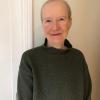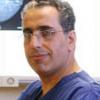New research carried out by scientists from the University of Copenhagen in Denmark has identified the molecular switch for the development and spread of breast cancer.
The team of researchers, which was led by protein researcher Professor Jesper Velgaard Olsen, used state of the art technology to study cellular processes. The surface of every cell is covered with receptors or "switchboards" that control communication between the cell and the world around it. The technology, which includes advanced mass spectrometry, allows rapid investigation of what happens inside cells when selected proteins combine with a chosen receptor. This allows thousands of proteins to be analysed in a very short time.
The scientists investigated a cell surface receptor, the FGFR2b receptor, which is known to play an important role in the development of internal organs in the embryo, and the lungs in particular.If an FGFR2b signal goes wrong the normal development of lung tissue is affected.
The new research discovered that two proteins bind to the FGFR2b receptor on the cell surface; one controls cell division and the other cell movement. Both of these are fundamental to normal cell development but if they are not properly regulated it can result in the development and spread of cancer cells. This discovery therefore suggests that FGFR2b is involved in the disease process of certain types of breast cancer.
Prof. Olsen, who works in the University's Novo Nordisk Foundation Center for Protein Research, explains what was discovered:
"In simple terms, we have mapped the molecular switch on the receptor that turns two important biological processes on and off, respectively.
We have, in other words, pinpointed the binding site that can cause increased spreading of breast cancer cells and thus the development of metastases."
The investigation was confined to human cancer cells and mouse tissue but Professor Olsen believes that the FGFR2b receptor could become a new biomarker for diagnosing and treating cancers:
"The more we know about the body's transmission systems, the better we become at targeting medical treatment. Hopefully, we will in future be able to offer customised treatment based on the individual patient's cellular profile."
Leading Consultant Breast Surgeon Mr Simon Marsh comments:
“When it comes to the ‘next big thing’ I personally think that surgery and radiotherapy will remain an important part of breast cancer treatment for many years yet. The advances will come in how we decide on which particular drugs are useful for each cancer. However, while the causes of breast cancer remain obscure, the treatments continue to improve and we can be optimistic about further developments in the future.”
The findings of the study were published in the journal Molecular Cell.
Facts about breast cancer
- Breast cancer is the most common cancer in women
- The biggest risk factor, after gender, is increasing age – approximately 81% of breast cancers occur in women over the age of 50.
- More people are being diagnosed with breast cancer but survival rates are improving – probably as a result of improved treatment and earlier detection.
- Breast cancer also affects men, but it is rare – around 400 men are diagnosed each year.
- Around 55,000 people are diagnosed with breast cancer each year in the UK. That’s one person every 10 minutes
- Approximately 12,000 people die from breast cancer in the UK every year
- Breast cancer is the most common cancer in the UK (around a third of all new cancers diagnosed in women in the UK are breast cancer).
- There are an estimated 550,000 people living in the UK today who have had a diagnosis of breast cancer.








